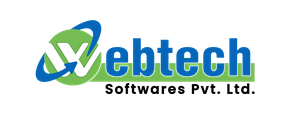In the wake of the COVID-19 pandemic, remote work has become a prevalent aspect of the modern workforce. While many businesses are embracing this shift towards flexibility and independence, some are succumbing to the temptation of monitoring their remote employees’ every move. However, is this surveillance really necessary, or does it undermine the trust and autonomy crucial for a thriving workplace culture?
Gene Marks, in his article originally featured in The Guardian, emphasizes the dangers of succumbing to the urge to monitor remote workers excessively. While the pandemic may have prompted a scramble to keep operations afloat, Marks argues that the push for remote monitoring goes against the principles of trust and respect. The information is taken from a article appeared The Guardian.
The Pitfalls of Monitoring Remote Workers: Explained
One of the main reasons cited for implementing monitoring software is to ensure that employees are working a full day and not misusing company resources. However, the prevalence of monitoring tools raises concerns about privacy invasion and micromanagement. The idea of using in-home cameras to monitor employees is particularly alarming, blurring the boundaries between professional and personal life.
The increase in demand for remote monitoring software reflects a broader trend towards surveillance in the workplace. Companies like Aware, Microsoft, Activtrak, Kickidler, Workpuls, and iMonitorSoft offer solutions that promise to track employee activities and productivity. However, the proliferation of these tools raises questions about the erosion of employee privacy and autonomy.
Marks emphasizes that monitoring employees is the antithesis of trust, sending a clear message of distrust to the workforce. Instead of focusing on micromanaging employees’ every move, Marks suggests that businesses should prioritize achieving their objectives and trust their teams to deliver results, whether they’re working from home or elsewhere.
Ultimately, the key to a successful remote work environment lies in fostering a culture of trust, autonomy, and accountability. Employers should focus on setting clear goals and expectations for their employees, providing the support and resources they need to
succeed, and trusting them to manage their time and tasks effectively.
Why use controlio for employee monitoring?
Controlio offers a comprehensive solution for monitoring remote employees’ computer activities, providing valuable insights into productivity, efficiency, and compliance. With features such as real-time screen monitoring, keystroke logging, application and website tracking, and customizable alerts, Controlio allows employers to track employee behavior discreetly while respecting privacy. By using Controlio, businesses can ensure accountability, identify areas for improvement, and protect sensitive data. With its user-friendly interface and robust features, Controlio is an effective tool for optimizing remote workforce management and enhancing overall productivity and security.
While the temptation to monitor remote workers may be strong, businesses must resist this urge and prioritize trust and respect instead. By empowering employees to take ownership of their work and respecting their privacy, businesses can foster a positive and productive remote work environment where employees feel valued and trusted. After all, as Marks aptly states, “This is not how you treat your people. This is not how you trust your team.

